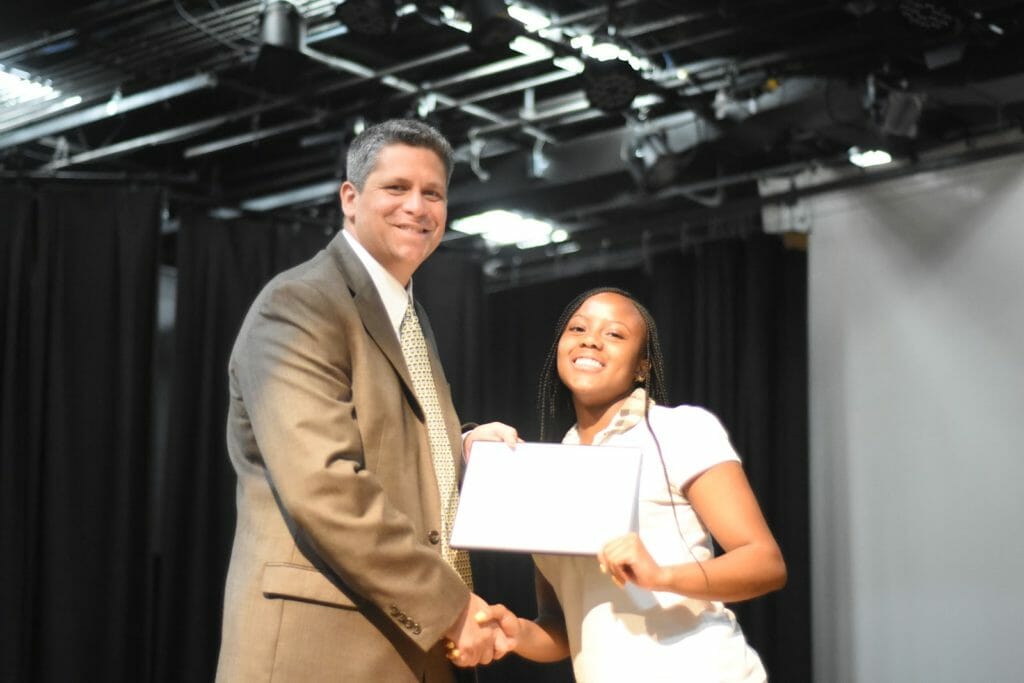David Roth, Head of Middle School
Growth Mindset and Distance Learning

So much of what we’re about at McLean School connects to the value of a growth mindset. Unlike a fixed mindset, or the belief that your intelligence and skills are what they are and can’t be improved, a growth mindset is the belief that – with effort and perseverance – change is possible. This classification, as described by research pioneer and psychologist, Carol Dweck, is something I’ve been thinking about a lot lately, specifically as it relates to distance learning.
When we talk about growth mindset, what we’re really talking about is the ability to stay open and flexible in the face of uncertainty, challenge, and change. Although growth mindset isn’t something that’s usually explicitly taught, it’s central to a McLean education – and now more than ever. Here are a few key ways to foster growth mindset in this new living and learning paradigm:
Model the Mindset You Seek.
At McLean, we continue to do what we’ve always done: praise effort as well as ability while modeling positivity, perseverance, and patience. In recent months, we have had our share of practice as we transition to a new way of teaching and learning. While we’re extremely proud of our robust distance learning program, there have been, as expected, a few glitches. There are some offerings that work better than others and other plans that take some fine-tuning. We see it all as an opportunity to learn, because how can we expect our students to do this if we aren’t willing to do it, too? We believe strongly that sharing what you don’t know with students is just as powerful as sharing what you do know. It makes us more human, and therefore kids are more likely to trust, connect, and listen to us. This willingness to take feedback and use it to improve is what resilience – and growth mindset – is all about.
Families are grappling with this, too. I’ve heard from some parents that they feel reluctant to admit when they’re out of their depth – or, in other cases, are too quick to say “I don’t know how to help you with this.” A recent New York Times article, which focuses on parents helping their children with math, touts the tenets of growth mindset while providing practical recommendations for supporting students in this era of distance learning.
Embrace “Desirable Difficulties.”
This is the idea that challenges can be good, a means to growth and learning. Of course, it is the last thing that many kids and teens (and adults, for that matter) want to hear in the thick of hard times, but just remaining open to the possibility of positive outcomes and opportunities is a growth mindset at work! Here’s what I’m seeing with our students right now: way more self-advocacy, with students proactively reaching out to teachers for help, requesting time to talk, increased independence. Kids are flexing muscles they didn’t even know they had, and getting stronger as a result.
Our 5th and 6th graders have been exploring Rube Goldberg machines – those complex contraptions designed to achieve a simple result. It’s the perfect project for right now, when the combination of time, space, and increased free time lends itself to creativity. Still, successfully stringing together a series of chain reactions is no small task and frustration defines the process as much as dominoes, golf balls, and pulleys. But you fail and you learn and you try again.Teachers are not saying “work on growth mindset!” But, with a project like this at a time like now, it happens organically . . .and maybe a student discovers a passion for engineering in the process. Desirable difficulty for the win.
Consider Mental Health Benefits.
A study published in the Journal of Child Psychology and Psychiatry showed that a single session growth mindset intervention helped anxious and depressed teens feel less so, even several months later. It makes sense, given that so much of anxiety has to do with feeling a lack of control: if you believe you have the ability to improve your circumstances and effect change, it shifts the power from external sources to self, which enables you to feel hopeful.
This is a powerful message for our kids, and for all of us. Although we may not control things like state regulations or the timing of a Covid-19 vaccine, we can control our own personal environments: how much effort we put in, how we feel about what we’re doing, and how we feel about ourselves. In these challenging times, it’s easy for children to feel stuck – what’s important for them to understand, however, is that it’s just as easy to get unstuck… you just have to believe it’s possible.
– David Roth, Assistant Head of School for Educational Programs & Head of Middle School